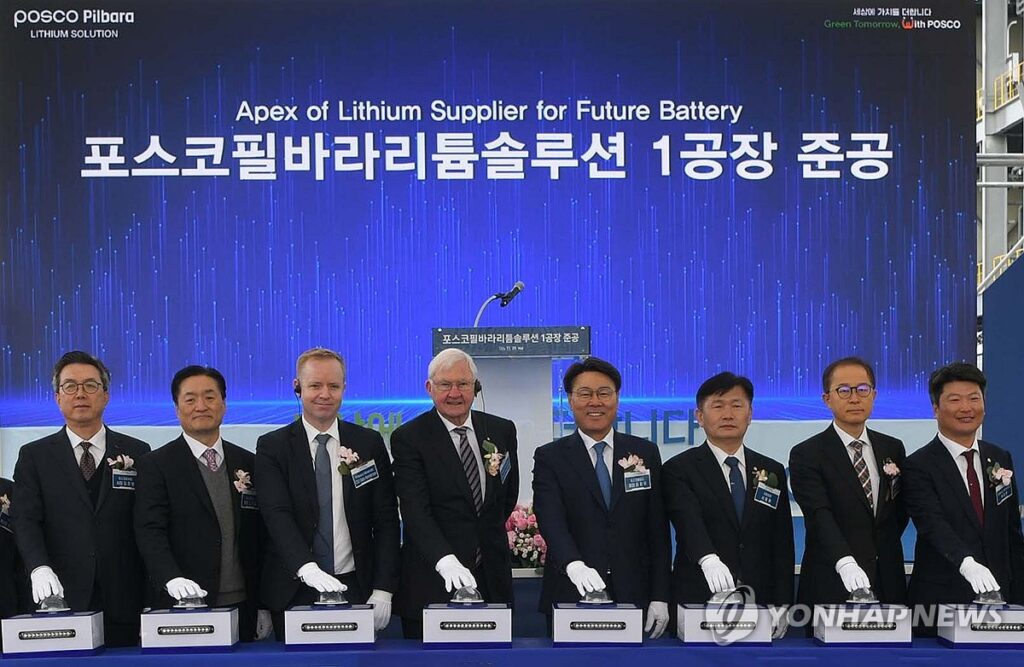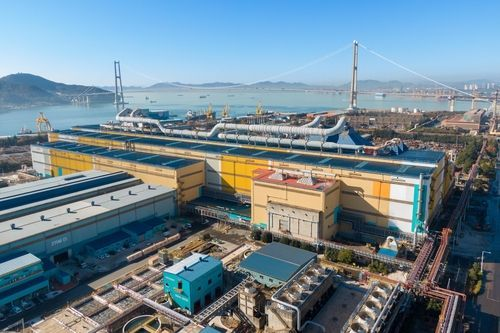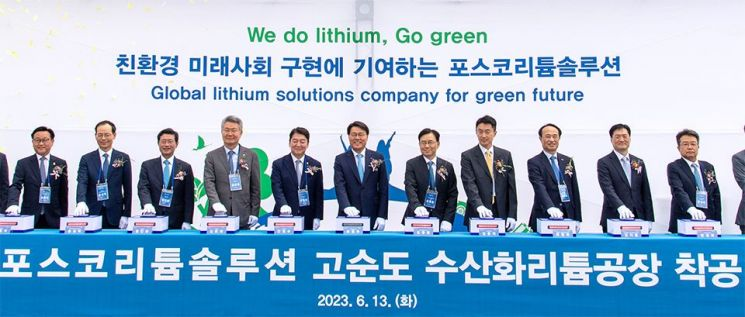
POSCO Group has completed a commercial production plant that extracts lithium hydroxide from ore lithium for the first time in Korea.
POSCO Group announced on the 29th that it has completed a lithium hydroxide plant of POSCO Pilbara Lithium Solution and a high-efficiency no-directional electric steel sheet (Hyper NO) plant in POSCO Gwangyang Steel Plant at Yulchon Industrial Complex in Jeollanam-do.
The first plant of lithium hydroxide completed on the same day is 21,500 tons per year, and POSCO Group plans to complete the second plant of the same size by 2024. POSCO Pilbara Lithium Solution was created in 2021 by a joint venture between POSCO Holdings and Pilbara Mineral, an Australian mining development company. POSCO Pilbara Lithium Solution’s goal is to establish a lithium hydroxide production system for secondary battery materials with an annual capacity of 43,000 tons extracted from Australian ore lithium by 2024.
POSCO succeeded in localizing the production of lithium hydroxide, which had been entirely dependent on imports, by completing the construction of POSCO Pilbara lithium hydroxide plant. It developed and applied its own technology to extract lithium from ore raw materials.
In addition, the entire production process of securing raw materials from Australia and processing them in Korea is carried out in countries that have signed free trade agreements with the U.S., so the U.S. can also benefit from the Inflation Reduction Act (IRA).

Starting with the completion of the lithium hydroxide plant, POSCO Group plans to expand its capacity to 220,000 tons of ore lithium.
Starting next year, the first and second phases of lithium plants based on Argentina’s brine resources will be completed sequentially. The goal is to establish a 100,000 ton production system for brine lithium over a total of four stages.
In addition, the company will develop lithium resources such as clay lithium, genetic brine lithium and others in North America to continuously expand its global lithium production capacity and secure 423,000 tons of lithium production capacity by 2030. In addition, POSCO Group completed the first phase of its hyper-eno plant with an annual capacity of 150,000 tons at POSCO’s Gwangyang Works on the same day. The company aims to meet growing global demand for steel for eco-friendly cars and high-end home appliances.
By 2024, POSCO Group plans to complete a two-stage plant with the same size as the first phase at Gwangyang Steelworks to complete a total production system of 400,000 tons of Hyper-No, including 300,000 tons in Gwangyang and 100,000 tons in Pohang.

POSCO Group explained that this is enough to create a drive motor core that can accommodate about 5 million electric vehicles.
In the future, POSCO Group plans to consider establishing an electric steel plate plant in North America.
POSCO Group plans to actively respond to the era of the global electric vehicle market by establishing a ‘1 million ton system for calculating electric steel sheets’ by 2030.
POSCO Group Chairman Choi Jung-woo said in a commemorative speech at the completion ceremony, “Posco Group has secured a leading position in the global eco-friendly car market by localizing lithium, which is a key raw material for secondary batteries, and expanding the supply of high-efficiency electric steel sheets,” adding, “It has also contributed to strengthening national competitiveness, laying a bridgehead to become a leading eco-friendly future material company.”
EJ SONG
US ASIA JOURNAL



